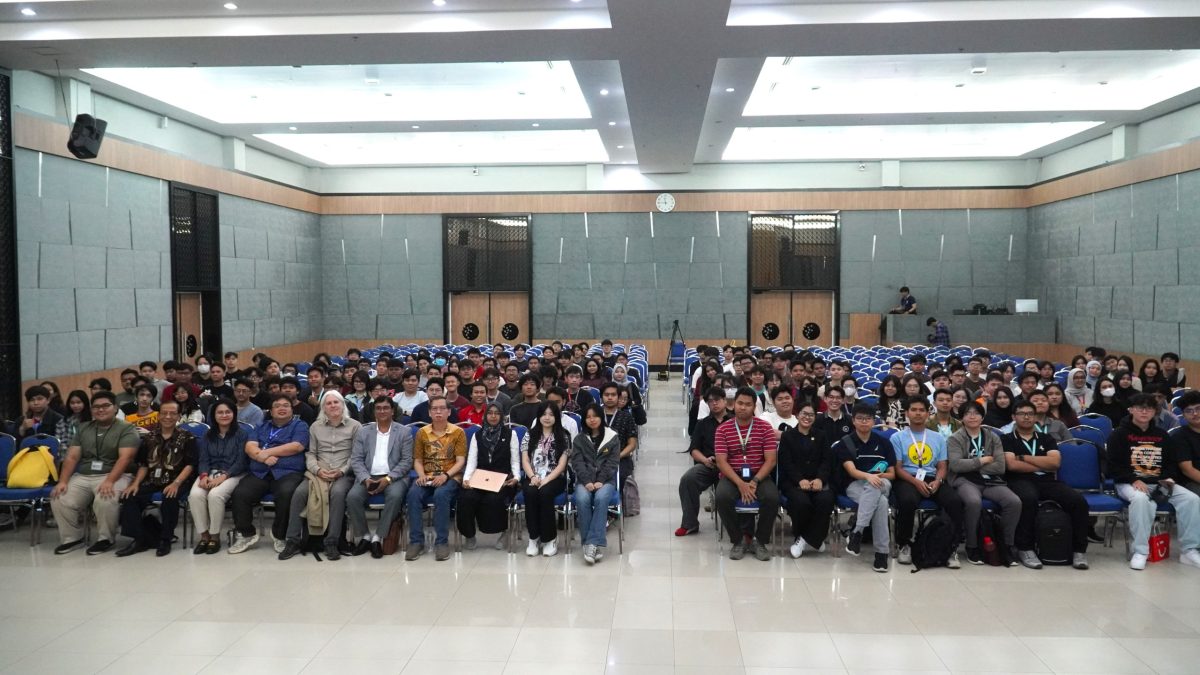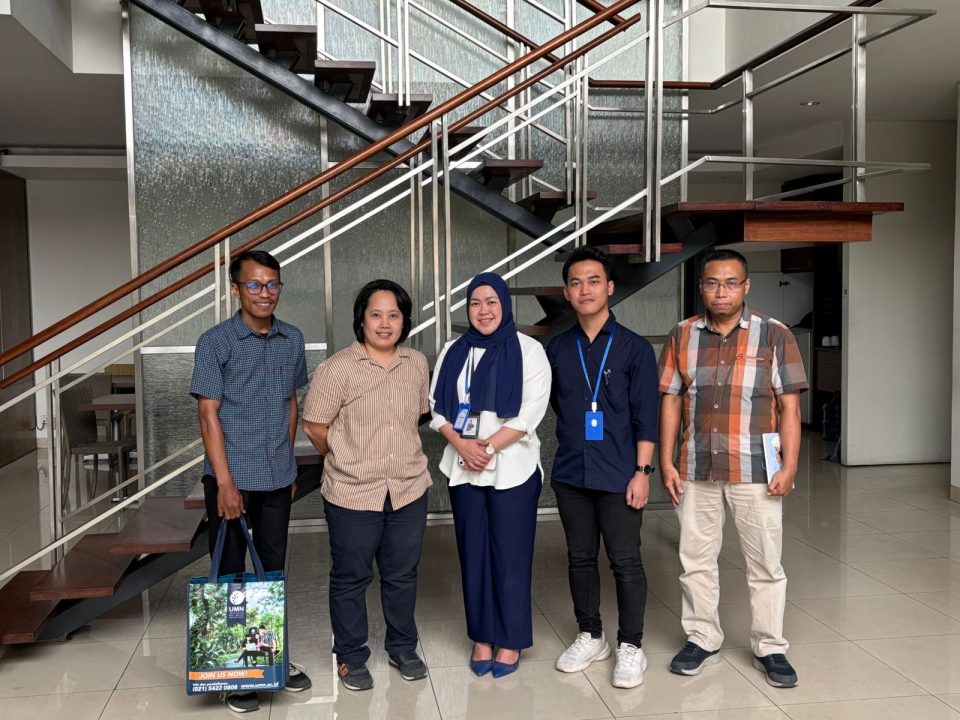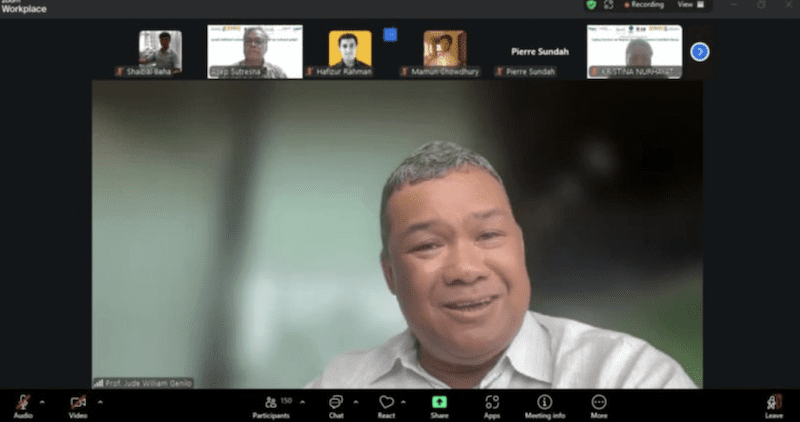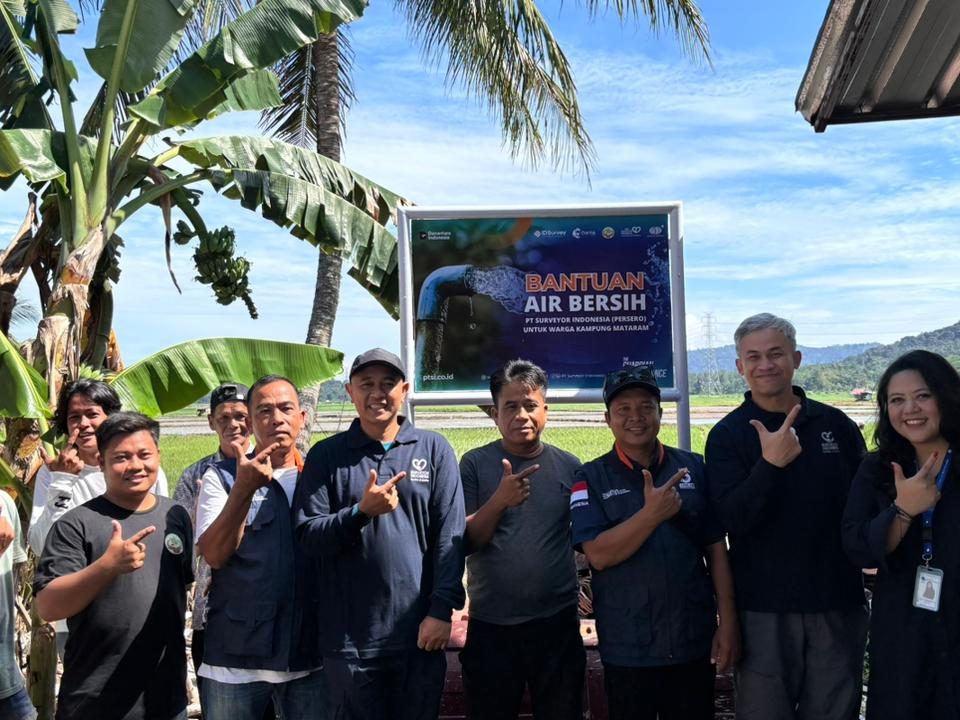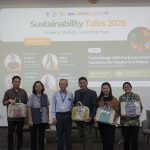
Sustainability Talk UMN Explores How Technology Supports Sustainability
September 30, 2025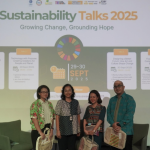
UMN Sustainability Talk: Industry and Students Promote Sustainable Circular Economy
September 30, 2025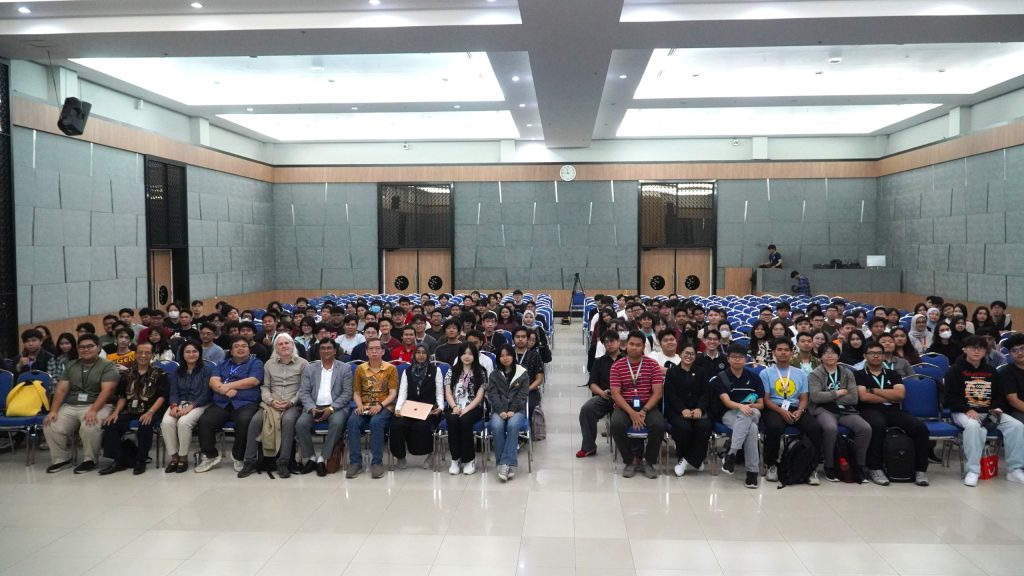
UMN Engineering and Informatics Faculty guest lecture with Surendra, Andrea, and Johan. (Doc. UMN)
Tangerang – On Monday (September 25, 2025), the Faculty of Engineering and Informatics at UMN held a guest lecture on “Review of Published Research and Emerging Trends in Relevant Research Areas in Information Technologies.” This guest lecture was presented by three speakers, namely Prof. Dr. Surendra N. Rahamatkar from Avantika University, India, Prof. Andrea Corradini, Ph.D., from the University of Pisa, Italy, and Johan Setiawan, S.Kom., M.M., M.B.A., from Multimedia Nusantara University.
Various countries are now echoing technological developments and sustainability issues. This is because there are more and more innovations that make human life easier and positively impact the environment. This guest lecture was intended to enable students to see the landscapes of various countries and each country’s main focus.
“India has a target of becoming a global leader in technology by 2047, so currently, there are many innovations related to technological advances, ranging from research and trends in the field of information technology to new technological landscapes, one of which is Artificial Intelligence (AI). This target is not only a roadmap but also India’s commitment to becoming a developed country through collaboration with various countries and international support,” Prof. Dr. Surendra N. Rahamatkar, a lecturer representative from Avantika University, India, said.
Surendra also presented various examples of technological innovations in India that are currently used to meet needs and become part of people’s daily lives, such as the Aadhaar System, Unified Payments Interface (UPI), Digilocker, and BHAShni. These systems support transactions, documents, communications, and public data.
“In addition, India has also initiated various other technologies such as 6G & Satellite Internet, Green Hydrogen, which is currently widely used as a clean, renewable energy source, and biotechnology. With this, India is committed to leading global data management and digital infrastructure, collaborating with various sectors of society, industry, government, and academia,” Surendra added.
With India’s commitment to becoming a global technology leader, academia certainly cannot be overlooked. Surendra emphasized that research and development play an essential role in this regard. For Surendra, research in the field of technology can help build the initial foundation and identify the gaps that will be needed in the future.
“To start research, we need to know the objectives and scope of the future research. Determine the areas that need research, and with this, you need to be selective, focus on the research, and have the right framework,” Surendra said.
In addition to looking at it from India’s perspective, this guest lecture also explored technological developments and research in the European Union. Prof. Andrea Corradini, Ph.D., one of the lecturers representing the University of Pisa, Italy, stated that the European Union is currently focusing on developing digital technology with sustainability innovations.
“The European Union is indeed more focused on ‘sustainability inclusivity’ because we want to positively and equitably impact society. In the European Union, we always have to know the current social, economic, and environmental issues. These include security, market, geopolitical issues, and many more,” Andrea explained.
Andrea also explained how digital transformation in the European Union has many complex and strict regulations. This is because the European Union upholds equality for both the public and sellers, and considers the rapid and massive digital changes. This has led to three main focuses in the European Union, namely Sustainable Development, Digital Transformations, and Health & Biotechnology.
“In the European Union’s Research and Development, there are several clusters ranging from Aerospace, AI & Machine Learning, ICT, E-Health, Quantum and Cryptography, Environment and Agriculture, Energy, Mobility and Transport, and various other topics related to the three main focuses of the European Union,” Andrea added.
Andrea also explained the various challenges in research and development in the European Union, namely complex regulations and rules and funding that must be balanced with research results to produce sustainable innovation. Another challenge is the need for professionals who understand research and innovation for the future.
The third speaker, Johan Setiawan, S.Kom., M.M., M.B.A., from Universitas Multimedia Nusantara, continued this guest lecture. On this occasion, Johan presented his research on e-commerce and online delivery and how people, especially in Indonesia, currently respond to online delivery.
“Currently, there are many e-commerce platforms everywhere in Indonesia, and each e-commerce platform also has its own delivery service. This is because many people indirectly want transparency in the delivery of their packages, and besides that, there is also the factor of advancing technology, so that people also demand estimates and trust in e-commerce,” explained Johan.
Johan also shared various things platforms can do with the current technological advancements. These include real-world factors like weather, rain, and traffic with accurate estimates. For Johan, technological innovation requires accuracy and good innovation to enhance public trust ultimately.
By Rachel Tiffany | UMN News Service
English translation by Levina Chrestella Theodora
Kuliah di Jakarta untuk jurusan program studi Informatika| Sistem Informasi | Teknik Komputer | Teknik Elektro | Teknik Fisika | Akuntansi | Manajemen| Komunikasi Strategis | Jurnalistik | Desain Komunikasi Visual | Film dan Animasi | Arsitektur | D3 Perhotelan , di Universitas Multimedia Nusantara.

